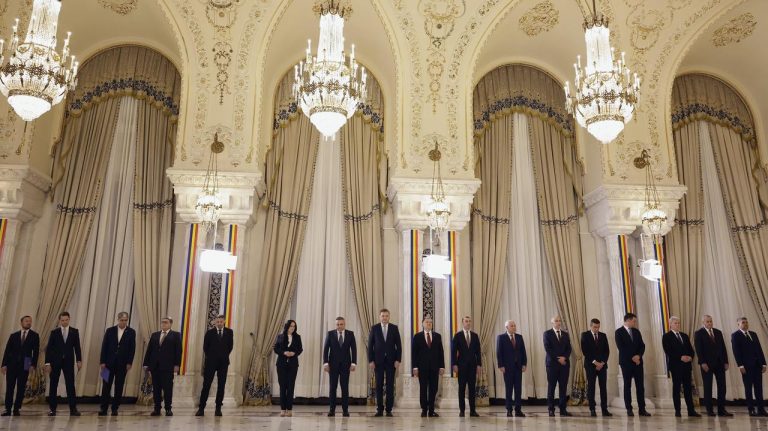The Romanian Parliament approved the new government of Marcel Ciolacu. The leader of the Social Democratic Party (SDP) headed the previous cabinet in June 2023, and the current government was elected as a result of the December 1 parliamentary elections.
On Monday evening, 240 deputies in the lower house of the parliament, which has 329 seats, voted to appoint Siolaku's new cabinet. 143 deputies were against it. – I want to thank my colleagues who voted for me and those who did not vote for me – said the Romanian Prime Minister after the results were announced, according to local public television.
The Social Democratic Party currently forms a ruling coalition with the Liberal National Party (PNL) and the centre-right Hungarian Democratic Union in Romania (UDMR). The new government is also supported by representatives of national minorities. The new Romanian cabinet consists of 16 ministries. It also includes three deputy ministers, one from each coalition group. PSD politicians took over eight ministries, PNL activists took over six ministries, and UDMR representatives took over two ministries.
The new government of Marcel SiolakuEPA/ROBERT GEMENT
“It is a sign that the representatives of the current parties in power are defending themselves from losing power”
Jakub Bielamowicz, an analyst at the New Europe Institute, explained that the PSD represents a post-communist environment, similar to the Polish Democratic Left Coalition before 2005. – In Poland, this camp is rotten, and in Romania, since the overthrow of Nicolae Ceausescu, it manages the country together in different configurations and is the strongest concrete of political mastery, – he said.
According to this analyst, it is the people's opposition to these “old analyzes” and the systemic corruption associated with them that contribute to the growth of anti-establishment forces in Romania.
According to Belamovic, the appointment of another Ciolac government, made up of the same major parties, ignores the desire for change in Romanian society, which could increase the voice of the opposition ahead of new presidential elections. – This decision signals that the representatives of the parties that currently rule in Romania are protecting themselves from the loss of power and influence, which paves the way for even more mobilization of voters against the system, – the analyst emphasized.
Romanian Prime Minister Marcel CiolacuPAP/EPA/ROBERT GEMENT
However, in the short term, this can help maintain the current order, Bilamovic believes. – Maybe in order to stay in the government, they are ready to sacrifice the presidency and give it to the radicals. Or they hope the anger will subside after the holidays and they may be able to eliminate their candidate, the expert says.
Belamovich noted that the electorate of the right-wing opposition, which makes up about 30 percent of the public, “is not very involved in politics”, but acts under the influence of current problems. – First, extremists gained popularity due to dissatisfaction with the government's pandemic policy, and today it attracts voters who suffer from inflation, which is the highest in the European Union – he noted.
He also emphasized that these voters are not particularly pro-Russia. – It mostly includes certain narratives that the Kremlin is currently promoting. They think: “Romania should not interfere, let's leave these world conflicts. (…). Let us live our lives, we are interested in our country,” explained the analyst.
New presidential elections will be held
One of the new government's tasks will be to set a date for the presidential election after the Constitutional Court overturned its first decision on December 6, declaring the results of the November 24 vote invalid. Unexpectedly, in the first round of the elections, a little-known and anti-establishment candidate, Calin Georgescu, won.
The decision to invalidate the results of the first round of voting was made on the basis of documents that the election campaign of Georgescu was the result of tricks that were probably organized or supported from outside the country. Later, some Romanian media, citing the local tax administration, reported that the campaign was financed, among other things, by the National Liberal Party.
The decision of the Constitutional Court deepened the political crisis in Romania, and the European Commission launched an investigation into the possible interference of the TikTok platform in the election process. New presidential elections in Romania may be held as early as March 2025.
Main image credit: EPA/ROBERT GHEMENT

